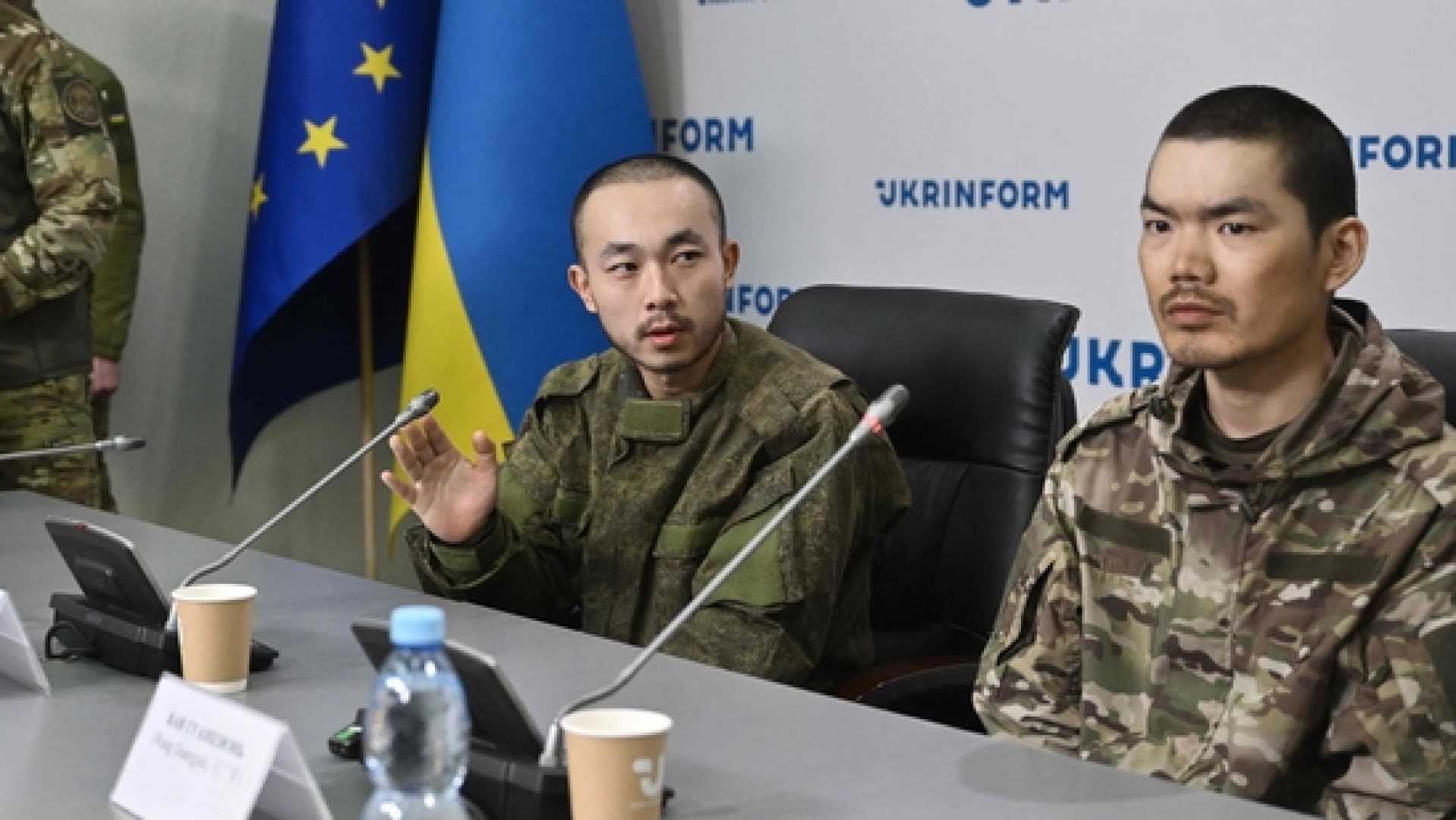World
Ukrainian POWs Raise Questions About Chinese Recruitment in Ukraine Conflict

KYIV, Ukraine — During a recent press conference in Kyiv, two Chinese nationals captured while fighting alongside Russian forces spoke out about their experiences, raising significant questions about the involvement of foreign fighters in the ongoing conflict. The event, held on April 14, 2025, marked a controversial moment as Ukraine showcased these prisoners of war (POWs) to the media, which some experts argue may contravene international humanitarian law.
Ukraine’s decision to feature the POWs comes amid growing concerns about China‘s role in the war. While Beijing officially maintains a policy of neutrality, it has supported Russia diplomatically and economically, and this latest development has put a spotlight on the enlistment of foreign fighters, especially from China. Both POWs discussed how financial promises motivated their enlistment. One recounted losing his job during the coronavirus pandemic and being lured to Russia with the prospect of earning 250,000 rubles (about $3,000) a month—a wage significantly higher than he could earn at home.
The man, who has a background in medical rehabilitation, expressed that he was initially led to believe he would be contributing in a support role. Instead, upon arriving in Russia, he found himself training as a combat fighter, often relying on hand signals for communication due to the language barrier created by documents only being available in Russian.
Documents obtained by CNN from a Ukrainian intelligence source reveal the nature of contracts signed by foreign fighters. One contract stipulates the soldier’s obligation to engage in combat and fulfill duties during martial law, indicating that foreign recruits may be misled about their roles. “I didn’t know what to expect,” the POW said while recalling the initial moments leading up to his capture in Donetsk. “When my captain told me to start the attack, I didn’t even know where the target was.”
The two men surrendered after just three days on the battlefield, highlighting the complexities of warfare involving foreign fighters. Ukraine has been capturing foreign nationals from various countries, with reports of those from Sri Lanka, Nepal, and even North Korea joining the fray. A Ukrainian defense intelligence source explained that Russia’s army is increasingly relying on foreign recruits as it struggles to maintain its military front.
Ukraine’s recent declaration of over 155 Chinese nationals fighting for Russia has intensified speculation over Beijing’s awareness of or involvement in this recruitment. President Volodymyr Zelensky noted that the Ukrainian Security Service would be investigating these claims but stopped short of stating any conclusive evidence linking China’s government to the enlistment of these fighters. “I don’t have an answer to this question yet. We believe that Beijing is monitoring the situation,” Zelensky said during a press conference.
Both POWs, however, insisted they acted independently, pointing to recruitment videos circulating on Chinese social media that prompted their decision to join the conflict. These videos, which depict Russian soldiers in training and promote a sense of adventure and military valor, seem to have resonated with many individuals in China, where such opportunities for direct combat experience are scarce.
The Ukrainian government’s strategy to present the captured Chinese fighters appears to align with its broader goal of seeking to influence the United States and Europe’s perception of China’s role in the conflict with Russia. Analysts suggest that showcasing the presence of Chinese fighters in the Russian military may be an effective political ploy for Zelensky amid ongoing discussions about global alliances.
Following the press conference, China’s Ministry of Foreign Affairs urged parties involved to avoid releasing irresponsible statements regarding their country’s role in the conflict, indicating the sensitive nature of this issue for Beijing.
This unprecedented public display of POWs not only reflects the grim realities of the Ukraine-Russia conflict but also the evolving dynamics of international relations as foreign fighters from diverse backgrounds engage in the battle.












